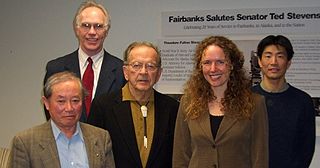A Quote by Willie Soon
The climate system is constantly readjusting naturally in a large way - more than we would ever see from CO2. The CO2 kick [impact of CO2 emissions] is extremely small compared to what is happening in a natural way. Within the framework of a proper study of the sun-climate connection, you don't need CO2 to explain anything.
Related Quotes
CO2 is a minor player in the total system, and human CO2 emissions are insignificant compared to total natural greenhouse gas emissions. Therefore, lowering human CO2 emissions will have no measurable effect on climate, and continued CO2 emissions will have little or no effect on future temperature....While controlling CO2 emissions from burning fossil fuels may have some beneficial effects on air quality, it will have no measurable effect on climate, but great detrimental effects on the economy and our standard of living.
To reduce modern climate change to one variable, CO2, or a small proportion of one variable - human-induced CO2 - is not science. To try to predict the future based on just one variable (CO2) in extraordinarily complex natural systems is folly. Yet when astronomers have the temerity to show that climate is driven by solar activities rather than CO2 emissions, they are dismissed as dinosaurs undertaking the methods of old-fashioned science.
These proven positive consequences of elevated CO2 are infinitely more important than the unsubstantiated predictions of apocalypse that are hypothesized to result from global warming, which itself, may not be occurring from rising atmospheric CO2 levels. The aerial fertilization effect of atmospheric CO2 enrichment is the only aspect of global environmental change about which we can be certain; and to restrict CO2 emissions is to assuredly deny the biosphere the many benefits that accrue from this phenomenon.
It's likely that CO2 has some warming effect, but real proof of that hypothesis is tricky. You have to confirm by observation exactly how the CO2 changes the situation at different altitudes in the atmosphere and in different regions of the world. For example, CO2 is supposed to warm the upper air faster than the surface, but the measurements don't show that happening. When the CO2 effect is eventually pinned down, it will probably turn out to be weaker and much less worrisome than predicted by the global warming theorists.
Putting aside for the moment the question of whether human industrial CO2 emissions are having an effect on climate, it is quite clear that they are raising atmospheric CO2 levels. As a result, they are having a strong and markedly positive effect on plant growth worldwide. There is no doubt about this.
... The reality is that atmospheric CO2 has a minimal impact on greenhouse gases and world temperature. Water vapor is responsible for 95 percent of the greenhouse effect. CO2 contributes just 3.6 percent, with human activity responsible for only 3.2 percent of that. That is why some studies claim CO2 levels are largely irrelevant to global warming.
To reduce the interpretation of the causality of all kinds of climate changes and of global warming to one variable, CO2, or to a small proportion of one variable - human-induced CO2 - is impossible to accept. Elementary rationality and my decades-long experience with econometric modelling and statistical testing of scientific hypotheses tell me that it is impossible to make strong conclusions based on mere correlation of two (or more) time series.
A car produces about one pound of CO2 per mile. There is no problem with collecting the CO2 in the tailpipe, but one might easily end up with a trailer hitched to the car for carrying all this CO2 back to the filling station. The gas burned from a 15-gallon tank would fill up five 60-inch-tall gas bottles.

































